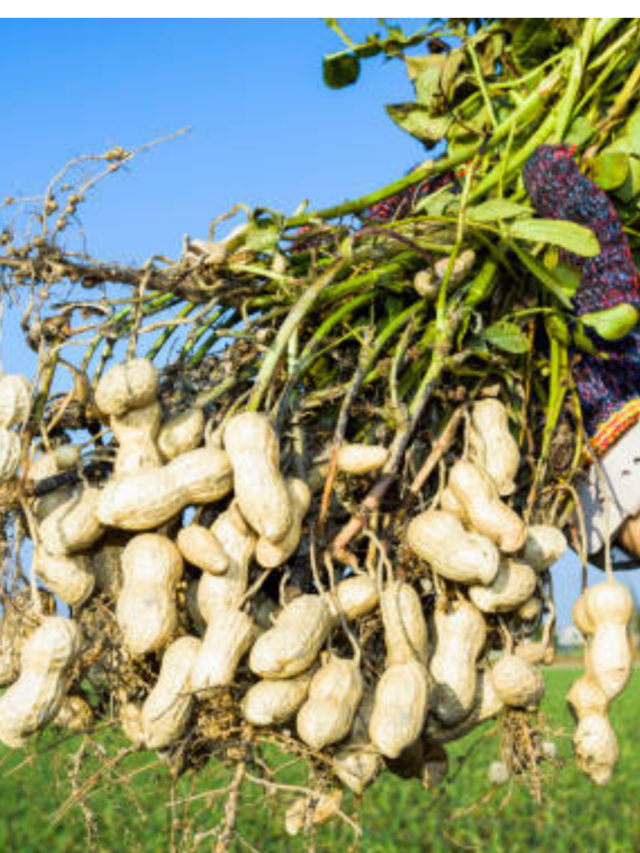Content Table:
1.Introduction to Poultry Farming in Israel
2.Key Rules and Regulations for Poultry Farming in Israel
3.Developing a Business Plan for Poultry Farming
4.Popular Poultry Breeds in Israel
5.Cost Considerations for Starting a Poultry Farm in Israel
6.Profit Potential in Poultry Farming in Israel
7.References
Introduction to Poultry Farming in Israel

Poultry farming plays a significant role in the agricultural sector of Israel. It is an important industry that caters to the country’s demand for poultry meat and eggs. Poultry products are widely consumed in Israel and are an essential part of the local diet.
The poultry farming industry in Israel is characterized by modern and efficient production systems, emphasizing high-quality standards and strict adherence to animal welfare regulations. Israel has a well-developed poultry infrastructure, with a range of farms, hatcheries, and processing facilities across the country.
The primary objective of poultry farming in Israel is to meet the domestic demand for poultry products, reducing the need for imports. The industry also contributes to the country’s economy by generating employment opportunities and promoting self-sufficiency in the production of poultry meat and eggs.
In recent years, there has been a growing emphasis on sustainable and environmentally friendly practices within the poultry farming sector. Efforts are being made to minimize the environmental impact of poultry production, such as efficient waste management systems and the utilization of renewable energy sources.
Overall, poultry farming in Israel is a dynamic and evolving industry, driven by the country’s commitment to high-quality standards, animal welfare, and meeting the demands of the local market.
Key Rules and Regulations for Poultry Farming in Israel
Poultry farming in Israel is subject to various rules and regulations to ensure the health and welfare of animals, food safety, and environmental sustainability. Here are some of the key regulations that poultry farmers need to comply with:
1.Licensing and Permit Requirements: Poultry farmers in Israel are required to obtain appropriate licenses and permits from the relevant authorities. This includes permits for operating a poultry farm, constructing poultry housing structures, and handling poultry waste.
2.Animal Welfare Standards: Israel has strict animal welfare regulations that apply to poultry farming. These regulations govern the housing, feeding, health management, and transportation of poultry. They aim to ensure that poultry are kept in humane conditions, have access to clean water and appropriate feed, and are protected from diseases and injuries.
3.Health and Disease Management: Poultry farmers must adhere to regulations related to disease prevention and control. This includes regular vaccinations, biosecurity measures to prevent the introduction and spread of diseases, and prompt reporting of any suspected outbreaks to the relevant authorities.
4.Antibiotic Use Restrictions: Israel has implemented restrictions on the use of antibiotics in poultry farming to combat the issue of antibiotic resistance. Farmers must follow guidelines for responsible antibiotic use, including proper dosage, withdrawal periods, and adherence to veterinary prescriptions.
5.Food Safety and Quality Standards: Poultry farmers are required to meet stringent food safety and quality standards. This includes maintaining proper hygiene and sanitation practices, ensuring proper storage and handling of poultry products, and complying with labeling and packaging regulations.
6.Environmental Regulations: Poultry farmers must comply with environmental regulations to minimize the impact of farming activities on the environment. This includes proper management of poultry waste, implementing waste treatment and disposal systems, and taking measures to prevent pollution of soil, water, and air.
7.Traceability and Record-Keeping: Poultry farmers are required to maintain accurate records of their farm operations, including feed and medication usage, flock health status, and production data. This helps in traceability and enables effective disease management and quality control.
It is important for poultry farmers in Israel to stay updated on the latest rules and regulations governing their operations. Regular inspections and audits may be conducted by relevant authorities to ensure compliance with these regulations and promote sustainable and responsible poultry farming practices.
Developing a Business Plan for Poultry Farming
A well-structured business plan is crucial for the success of a poultry farming venture in Israel. Here are some key considerations when developing a business plan:
1.Executive Summary: Provide an overview of your poultry farming business, including the vision, mission, and objectives. Summarize the key points of your business plan.
2.Market Analysis: Conduct a thorough analysis of the poultry market in Israel. Identify the demand for poultry products, including meat and eggs, and analyze the competition. Understand the consumer preferences, trends, and potential target markets.
3.Farming Model and Infrastructure: Determine the type of poultry farming system you plan to implement, such as broiler production, egg production, or both. Describe the farm infrastructure, including housing, equipment, and facilities required to support your chosen production system.
4.Product Line and Breeds: Specify the types of poultry breeds you intend to raise, considering their suitability to local market demands and conditions. Determine the product line, such as fresh meat, eggs, or value-added products like processed poultry.
5.Marketing and Sales Strategy: Outline your marketing and sales plan, including how you will promote and distribute your poultry products. Identify potential customers, such as retailers, wholesalers, restaurants, and direct-to-consumer channels. Consider branding, packaging, pricing, and advertising strategies.
6.Operational Plan: Detail the day-to-day operations of your poultry farm, including flock management, feed and nutrition, disease control, and biosecurity measures. Describe your staffing needs and management structure.
7.Financial Projections: Create financial projections for your poultry farming business. Estimate your initial investment costs, including land, infrastructure, equipment, and livestock. Project your income and expenses, including costs of feed, labor, veterinary care, and marketing. Calculate your expected revenue, profit margins, and return on investment.
8.Risk Assessment and Mitigation: Identify the potential risks and challenges that may impact your poultry farm, such as disease outbreaks, price fluctuations, or regulatory changes. Develop strategies to mitigate these risks, such as insurance coverage, contingency plans, or diversification of product lines.
9.Sustainability and Environmental Impact: Consider the environmental sustainability of your poultry farming operations. Outline your strategies for waste management, energy efficiency, and sustainable practices.
10.Implementation Timeline: Create a timeline outlining the key milestones and activities for setting up and operating your poultry farm. Set realistic deadlines for tasks such as acquiring permits, constructing infrastructure, procuring livestock, and launching marketing campaigns.
Remember to regularly review and update your business plan as your poultry farming venture progresses. A well-defined and adaptable business plan will serve as a roadmap to guide your operations and help you make informed decisions for the success of your poultry farming business in Israel.
Popular Poultry Breeds in Israel
Broiler Breeds:
1.Ross 308: Ross 308 is a popular broiler breed known for its fast growth rate, efficient feed conversion, and good meat quality. It is widely used in commercial broiler production in Israel.
2.Cobb 500: The Cobb 500 is another widely used broiler breed known for its high meat yield, feed efficiency, and excellent growth rate. It is favored by many poultry farmers in Israel.
Layer Breeds:
1.Lohmann Brown: Lohmann Brown is a common layer breed in Israel, valued for its high egg production, good feed efficiency, and strong eggshell quality. It is known for its reliable performance in commercial egg production.
2.Hy-Line Brown: The Hy-Line Brown is another popular layer breed known for its high egg production, adaptability to various environments, and excellent eggshell quality. It is well-suited for commercial egg production in Israel.
Dual-Purpose Breeds:
1.Sussex: Sussex is a dual-purpose breed known for its meat and egg production capabilities. It is valued for its calm temperament, good foraging abilities, and flavorful meat.
2.Rhode Island Red: Rhode Island Red is another dual-purpose breed that is known for its excellent egg production and flavorful meat. It is hardy, adaptable, and suitable for both small-scale and commercial farming operations.
Specialty Breeds:
1.Kabir: Kabir is a popular specialty breed in Israel, particularly in organic and free-range poultry farming. It is valued for its slower growth rate, robust health, and ability to forage effectively.
2.Ancona: Ancona is a distinctive breed known for its striking black and white feather pattern. It is a good layer of white eggs and is favored by some backyard poultry keepers in Israel.
These are just a few examples of popular poultry breeds in Israel. The choice of breed may depend on various factors such as market demand, farming system, climate, and individual preferences. It is essential to select breeds that are well-suited to the specific goals and conditions of your poultry farming operation. Conducting thorough research and consulting with local experts can help you make informed decisions regarding breed selection in Israel.
Cost Considerations for Starting a Poultry Farm in Israel

When starting a poultry farm in Israel, several cost factors need to be considered. Here are some key cost considerations:
1.Land and Infrastructure: The cost of acquiring or leasing land for your poultry farm will depend on the location and size of the property. Additionally, constructing or renovating poultry housing structures, including broiler houses, layer cages, or free-range systems, will contribute to infrastructure costs.
2.Equipment and Supplies: Essential equipment for poultry farming includes feeders, drinkers, heating and ventilation systems, egg collection systems (for layer farms), and incubators (for hatcheries). The cost of purchasing or leasing this equipment should be factored into your budget. Ongoing supplies such as feed, bedding, vaccines, medications, and cleaning materials will also incur costs.
3.Initial Livestock and Genetics: The cost of acquiring the initial livestock, such as chicks or hatching eggs, will vary depending on the breed and quality. Opting for high-quality breeds or certified parent stock may increase the initial cost but can potentially result in better performance and productivity.
4.Feed and Nutrition: Feed costs typically constitute a significant portion of the expenses in poultry farming. The type and quality of feed, as well as the size and production stage of the flock, will impact costs. Consult with nutritionists or poultry experts to develop cost-effective and nutritionally balanced feed formulations.
5.Labor and Staffing: Consider the labor costs required for daily farm operations, including feeding, cleaning, health monitoring, and general maintenance. The number of staff members will depend on the scale of your farm and automation levels.
6.Veterinary Care and Health Management: Regular veterinary care, vaccinations, and disease prevention measures are essential for maintaining flock health. Budget for veterinary services, medications, and potential emergency veterinary care to ensure the well-being of your poultry.
7.Regulatory Compliance: Ensure you allocate funds to meet the costs associated with obtaining necessary licenses, permits, inspections, and compliance with regulations related to animal welfare, environmental sustainability, and food safety.
8.Marketing and Promotion: Developing a marketing strategy and promoting your poultry products may incur costs for branding, packaging, advertising, and participating in trade shows or local markets.
It’s important to conduct thorough research and create a detailed financial plan to estimate the costs involved in starting a poultry farm in Israel. Consider seeking advice from experts or experienced poultry farmers in the region to ensure accurate cost projections. Additionally, regularly monitor and review your expenses to manage costs effectively as your poultry farm operations progress.
Profit Potential in Poultry Farming in Israel
Poultry farming in Israel offers good profit potential, given the country’s strong domestic demand for poultry products. Here are some factors that contribute to the profit potential in poultry farming:
1.Growing Demand: Poultry meat and eggs are staple food items in Israel, with a high per capita consumption rate. The demand for these products continues to grow, driven by population growth, changing dietary preferences, and a shift towards healthier protein sources. This growing demand provides opportunities for poultry farmers to generate revenue and maximize profits.
2.Favorable Market Conditions: Israel’s poultry market is relatively stable and less reliant on imports due to a strong focus on domestic production. This reduces the risk of price fluctuations and provides a favorable market environment for local poultry farmers. By meeting the local demand, farmers can establish themselves as reliable suppliers and potentially command competitive prices.
3.Efficient Production Systems: Poultry farming in Israel is characterized by modern and efficient production systems. Advanced technology, automated equipment, and optimized management practices contribute to improved efficiency and productivity. Higher productivity leads to increased output, reducing production costs per unit and enhancing profit margins.
4.Value-Added Products: Poultry farmers in Israel have the opportunity to diversify their product offerings and create value-added products. This can include processed poultry products such as sausages, deli meats, or ready-to-cook meals, which generally command higher prices in the market. Developing a portfolio of value-added products can contribute to increased profitability.
5.Export Opportunities: While the primary focus of poultry farming in Israel is to meet domestic demand, there may also be opportunities for export. Israeli poultry products are known for their high quality and adherence to strict standards. Capitalizing on export opportunities can further expand the market reach and revenue potential for poultry farmers.
6.Government Support and Incentives: The Israeli government provides various support programs, grants, and incentives for agricultural activities, including poultry farming. These initiatives aim to boost productivity, enhance competitiveness, and promote sustainable practices. By taking advantage of these support programs, poultry farmers can reduce costs and improve profitability.
It’s important to note that the profitability of poultry farming in Israel can be influenced by several factors, including feed costs, market competition, disease outbreaks, and regulatory changes. It is advisable to conduct a thorough financial analysis, consider risk factors, and regularly monitor market conditions to make informed decisions that optimize profit potential.
Additionally, factors such as efficient farm management, effective marketing strategies, and proper cost control measures will play a crucial role in maximizing profitability in poultry farming in Israel.
References
1.Israel Ministry of Agriculture and Rural Development: The official website of the Ministry of Agriculture in Israel provides information on various agricultural sectors, including poultry farming. (Website: www.moag.gov.il)
2.Israel Poultry Board: The Israel Poultry Board is a professional organization that represents the poultry industry in Israel. Their website may contain valuable information and resources related to poultry farming. (Website: www.poultry.org.il)
3.Agricultural Research Organization (ARO): ARO operates several research centers in Israel focusing on agriculture and farming. They may have publications or research articles related to poultry farming that can provide valuable insights. (Website: www.agri.gov.il/en/aro)
4.Academic Research Papers: Searching academic databases like Google Scholar, ResearchGate, or academic journals may provide you with scientific research papers and studies related to poultry farming in Israel.
5.Local Agricultural Extension Services: Local agricultural extension services or agricultural universities in Israel may provide resources, publications, or workshops specific to poultry farming. They can provide practical guidance and expertise tailored to the local context.









